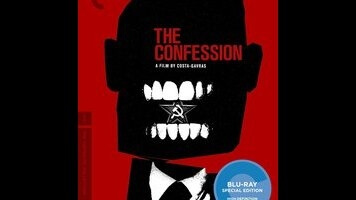Costa-Gavras’ Z follow-ups continued his political-thriller streak

Back in 1970, Costa-Gavras’ torn-from-the-headlines political thriller, Z, about the assassination of Greek politician Grigoris Lambrakis, made such an impression in the U.S. that it became only the second foreign-language film ever nominated for Best Picture at the Academy Awards. (The sole previous instance had been Renoir’s Grand Illusion, three decades earlier.) Having hit the big time, Costa-Gavras sensibly chose to make more movies in the same vein, while he still had the power to get them financed. His next several efforts, which were likewise based heavily on actual events, failed to ignite the popular imagination in the same way, and it would be a while before English-language variations like Missing (1982, with Jack Lemmon and Sissy Spacek) and Music Box (1989, starring Jessica Lange) raised his profile again. Those immediate post-Z films remain fascinating, though, and Criterion has just issued two of them, The Confession (1970) and State Of Siege (1972), on DVD and Blu-ray, making it easier to get a sense of just how pointedly political world cinema got during that era.
Of the two, The Confession is the less successful, though it did receive a Golden Globe nomination for Best Foreign Film. Yves Montand, who had starred as Lambrakis in Z, lost a nearly Christian Bale-level of weight to play Anton Ludvik (based on the real-life Artur London), Czechoslovakia’s Deputy Minister Of Foreign Affairs, who was arrested without warning in 1951 along with a dozen other Communist Party leaders. Tortured, barely fed, and forced to march around his tiny cell (in rough slippers that destroyed his feet) whenever he wasn’t sleeping, Ludvik was constantly pressured to sign a false confession that he’d been working against the Party as a spy. He refused for months, but eventually caved—in real life, London wound up being one of only three of the arrestees who wasn’t executed—and the film’s most interesting aspect is the twisted logic that Ludvik’s tormenters use to wear down his resistance over time. It’s like a master class in how to create a bad syllogism. Too much of the time, however, The Confession just watches Ludvik suffer, reducing him to a pitiable but dramatically negligible victim.
That’s less of a problem in State Of Siege, which likewise stars Montand as a captive but spends significantly less time with him. Costa-Gavras was working with very recent news for this one: It was inspired by the 1970 kidnapping of Dan Mitrione, a U.S. embassy official in Uruguay, by the Tupamaros, a leftist terrorist group. Mitrione had reportedly trained Brazilian and Uruguayan police officers in torture techniques, and his fictional counterpart, Philip Michael Santore (Montand), is accused of similar crimes by his captors, though there’s no indication of their validity within the film itself. Like Marco Bellocchio’s Good Morning, Night (2003), about the kidnapping of Italian Prime Minister Aldo Mora, State Of Siege is primarily a procedural about political negotiation. Here, the Tupamaros have the upper hand until a sudden setback creates a situation in which they essentially have no choice but to carry through with their threat to execute Santore—a fact that Santore himself is politician enough to recognize and acknowledge. The movie’s release inspired outrage from the U.S. government, which insisted that its representation of America’s involvement in Latin America was pure fiction. If anything, though, State Of Siege is probably too circumspect. Certainly, there are no winners here.
State Of Siege and The Confession are available on Blu-ray and DVD from Criterion.